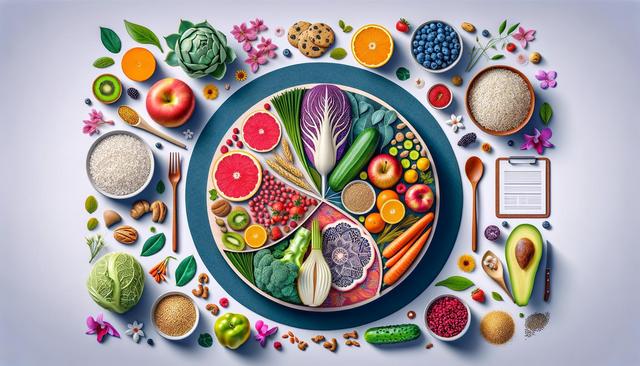Smart Dietary Choices to Support Breast Health
Maintaining breast health can be positively influenced by the nutritional decisions you make daily.

The Role of Nutrition in Breast Health
Nutrition plays a foundational role in overall health, and that includes the well-being of breast tissue. Scientific studies continue to highlight how certain dietary patterns and specific nutrients may help reduce the risk of issues related to breast health. While no single food guarantees prevention, incorporating a balanced and nutrient-rich diet can support the body’s natural defense systems and hormonal balance, both of which are crucial for breast health.
Several dietary habits have been associated with improved breast health, including eating more plant-based foods, reducing processed food intake, and ensuring adequate consumption of fiber and antioxidants. These choices help minimize inflammation and oxidative stress, two factors that can negatively affect breast tissue over time. Prioritizing whole foods over processed alternatives and maintaining a healthy weight are also important strategies that complement a breast-conscious lifestyle.
Fruits and Vegetables: Nature’s Protective Agents
One of the simplest yet most effective steps toward supporting breast health is increasing your intake of fruits and vegetables. These foods are rich in vitamins, minerals, fiber, and antioxidants, all of which play a role in maintaining cellular health and reducing inflammation. Cruciferous vegetables, in particular, have been associated with hormone regulation, which is particularly relevant for breast tissue.
Some beneficial options to include regularly are:
- Broccoli, Brussels sprouts, and kale
- Dark leafy greens like spinach and Swiss chard
- Berries such as blueberries, strawberries, and raspberries
- Tomatoes, which are high in lycopene
These foods provide compounds like sulforaphane and flavonoids that support detoxification and may help protect against cellular changes. Incorporating a rainbow of produce ensures a wide range of beneficial nutrients for breast health and overall wellness.
Healthy Fats and Their Protective Properties
Fats are often misunderstood in the realm of health, but certain types of fat are essential for breast tissue health. Omega-3 fatty acids, in particular, have been shown to support anti-inflammatory processes and may contribute to hormonal balance. These fats are found in foods such as fatty fish, flaxseeds, chia seeds, and walnuts.
It’s also important to minimize trans fats and reduce saturated fat intake from heavily processed or fried foods. Instead, opt for healthier fat sources like:
- Avocados
- Olive oil
- Nuts and seeds
These fats not only support breast health but also contribute to cardiovascular wellness, making them a smart choice for overall health. Incorporating moderate portions of these fats into meals can help you feel full and satisfied while providing essential nutrients.
Fiber and Gut Health Connection
Dietary fiber is more than just a digestive aid—it plays a significant role in regulating estrogen levels, which is important for breast tissue health. Fiber helps the body process and eliminate excess hormones, supporting hormonal equilibrium. Whole grains, legumes, fruits, and vegetables are excellent sources of fiber.
Focusing on fiber-rich foods can also benefit the gut microbiome, which in turn influences immune function and inflammation. Foods that are naturally high in fiber include:
- Oats and barley
- Lentils and chickpeas
- Apples, pears, and bananas
- Carrots and sweet potatoes
By supporting healthy digestion and hormone clearance, dietary fiber plays a dual role in promoting breast health and metabolic function. Aim for a gradual increase in fiber intake, paired with adequate hydration, to experience its full benefits without discomfort.
Limiting Risk Factors Through Dietary Awareness
While adding nutrient-dense foods is important, it’s equally vital to be mindful of what to limit. Diets high in alcohol, processed meats, and sugary foods have been linked to negative health outcomes, including those affecting breast tissue. Moderation is key, and making informed choices about what you consume can contribute significantly to long-term wellness.
Consider reducing or avoiding:
- Excessive alcohol consumption
- Highly processed snack foods and meats
- Sugar-sweetened beverages
- Refined carbohydrates
Replacing these items with healthier alternatives can make a noticeable difference over time. For example, opt for fruit-infused water instead of soda or choose grilled lean proteins over processed deli meats. These changes not only benefit breast health but also support energy levels and overall vitality.